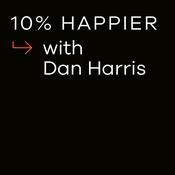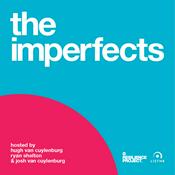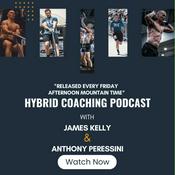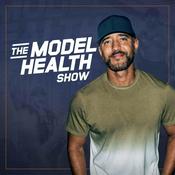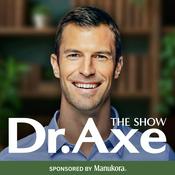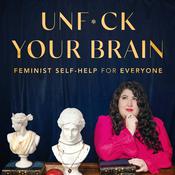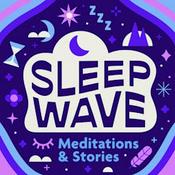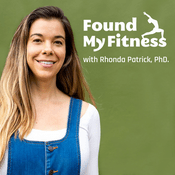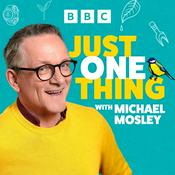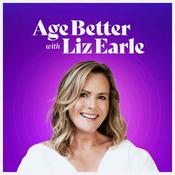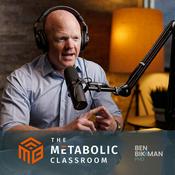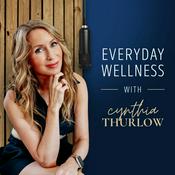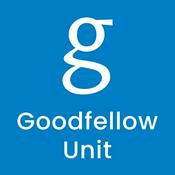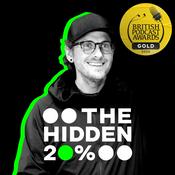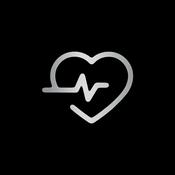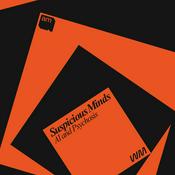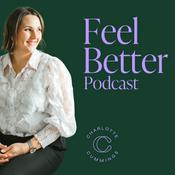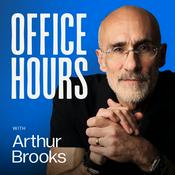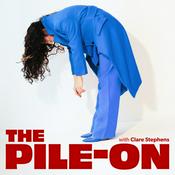349 episodes
- We break down how landing mechanics shape knee health and why squat-based, trunk-controlled landings protect young athletes more than upright, stiff styles. We share quick screens, daily warm-ups, and strength progressions that make safer landings stick without wasting time.
• defining knee valgus and why it raises ACL and patellofemoral stress
• how trunk lean spikes medial knee load
• squat-based landings vs upright landings and risk reduction
• short-lived transfer of prevention programs without daily practice
• fast screens: squats, heel taps, single-leg, depth drops
• cues that fix motor control vs mobility constraints
• building hip and core strength that transfers to landings
• mirror feedback and five-minute warm-up routines
• adapting technique for structural anatomy while maximizing modifiable factors
• resources and visuals to teach safe positions
We’ll add the landing mechanics blog and full lecture in the show notes. Print the infographic for your gym wall and teach from it daily.
We appreciate you listening!
To learn more about SHIFT, head here - https://shiftmovementscience.com/
To learn about SHIFT's courses, check our website here - https://courses.shiftmovementscience.com/
Also, please consider rating, reviewing, and sharing the podcast with your friends!
Thanks :)
Thanks for listening to The SHIFT Show! Check out SHIFT's most popular courses here!
https://courses.shiftmovementscience.com/
Want to join our online educational community of over 1000 gymnastics professionals and get 40+ hours of gymnastics lectures? Join The Hero Lab below!
https://shiftmovementscience.com/theherolab/
Check out all our past podcast episodes here!
https://shiftmovementscience.com/podcast/ - Burnout in youth gymnastics isn’t a kid problem—it’s an adult problem. We unpack new survey data showing that the biggest stressors in gyms are gossip, unclear roles, weak leadership, and pay that doesn’t match the real work. From our own journey transforming a miserable program into a place coaches and families love, we break down the practical steps any gym can take to reduce drama and raise performance.
We start with money and scope, because compensation without clarity fails both sides. You’ll hear how to map roles to market rates, budget real admin hours for lesson planning and meets, and apply the “bricklayer vs architect” lens to align pay with responsibility. We share negotiation scripts coaches can use to present objective hours and outcomes, plus the owner’s view on sustainable salary bands and growth paths.
Training is the next pillar. Coaches burn out when they can spot skills but can’t confidently teach progressions, strength prep, or safe progress checks. We outline a simple education engine: monthly paid clinics, peer-led demos on beam, bars, and floor, and annual trips to Congress or targeted workshops. Add guest experts in strength, nutrition, and mental skills to round out the staff toolbox and turn knowledge into retention and results.
Finally, we zoom in on systems that end back-channel chaos. Build three handbooks—staff, culture, and parents—to set expectations for behavior, communication, safety, and meet etiquette. Replace guesswork with objective move-up standards: attendance thresholds, strength numbers, and event-specific skill checklists using a stoplight tracker. Pair that with real accountability—documented warnings, suspensions, and, if needed, parting ways—so your values mean something on the floor and at meets.
If your gym feels loud and unclear, this conversation is your reset button. Subscribe, share this with your staff or owner, and leave a review with the one policy you’ll implement first. Your athletes will feel the difference. Your team will too.
We appreciate you listening!
To learn more about SHIFT, head here - https://shiftmovementscience.com/
To learn about SHIFT's courses, check our website here - https://courses.shiftmovementscience.com/
Also, please consider rating, reviewing, and sharing the podcast with your friends!
Thanks :)
Thanks for listening to The SHIFT Show! Check out SHIFT's most popular courses here!
https://courses.shiftmovementscience.com/
Want to join our online educational community of over 1000 gymnastics professionals and get 40+ hours of gymnastics lectures? Join The Hero Lab below!
https://shiftmovementscience.com/theherolab/
Check out all our past podcast episodes here!
https://shiftmovementscience.com/podcast/ - Pressure has a way of distorting priorities. The moment the lights go up and the scores start flashing, even calm adults can tighten, snap, or say things they wish they could take back. We wanted to talk frankly about how to keep the main thing the main thing: people first, gymnastics second. That shift changes how we coach after mistakes, how we handle parents, and how we protect safety and confidence across a long season.
We dig into what real support looks like the second an athlete falls: acknowledge the sting, set a short window to feel it, and move forward with a clear reset so the next event isn’t compromised. We talk about why yelling never improves performance, how composure lowers risk, and how a steady voice with specific feedback can raise standards without fear. From there, we zoom out to identity. Scores fade, medals fade, but character—and the relationships built in pressure—last. You’ll hear stories from the highest level, including Olympic heartbreak and redemption, and why the handshake after a miss often matters more than the podium moment.
Culture needs systems, not just pep talks. We share practical tools you can adopt today: educate parents early and often on expectations and etiquette; use the Rule of Seven to make routine readiness objective and safe; set staff boundaries and even a “safe word” to tag out before emotions take over. We also spotlight the quiet excellence of coaches who consistently produce great gymnastics without ever raising their voice. Calm doesn’t mean passive; it means predictable standards, clear communication, and a gym where be nice, work hard isn’t a poster, it’s practice.
If this resonates, share it with a fellow coach, parent, or athlete who wants a healthier season. Subscribe for more sport science, culture building, and practical tools, and leave a review with your best meet-day reset ritual—we’ll feature our favorites next time.
We appreciate you listening!
To learn more about SHIFT, head here - https://shiftmovementscience.com/
To learn about SHIFT's courses, check our website here - https://courses.shiftmovementscience.com/
Also, please consider rating, reviewing, and sharing the podcast with your friends!
Thanks :)
Thanks for listening to The SHIFT Show! Check out SHIFT's most popular courses here!
https://courses.shiftmovementscience.com/
Want to join our online educational community of over 1000 gymnastics professionals and get 40+ hours of gymnastics lectures? Join The Hero Lab below!
https://shiftmovementscience.com/theherolab/
Check out all our past podcast episodes here!
https://shiftmovementscience.com/podcast/ - February hits hard: cold mornings, late practices, weekend meets, and a school calendar that won’t quit. We dive straight into the reality of athletic overload and replace vague advice with a practical system built on three pillars that actually move the needle: sleep, fueling, and real downtime. Using an easy phone-battery analogy, we show how to close the mental “apps,” dim the brightness, and get full charges so training pays off when it matters.
We walk through sleep tactics backed by research and field-tested in the gym: consistent bed and wake times, morning and sunset light to anchor circadian rhythms, a cool dark room, and thirty screen-free minutes before bed. You’ll hear simple ways to manage late-night homework without wrecking sleep, plus the bedroom rules that make it easier to fall and stay asleep. From there, we shift to fueling and hydration, where many athletes unintentionally operate on fumes. Learn how to structure small, frequent meals and pre-pack snacks, use Sunday prep to save hours, and refuel after practice so your body can repair tissue, restore glycogen, and consolidate skills.
We also tackle culture: social media myths, “what I eat in a day” pitfalls, and the difference between looking fit and being fueled to perform. You’ll get ideas for bringing a sports dietitian to your team, involving parents in grocery and prep, and modeling the habits you want athletes to keep. Finally, we make the case for parasympathetic time—scheduled off-switch blocks, short breaks, and even strategic vacations—to lower stress and protect consistency through the grind. If you want to show up in the thick of season with energy, execution, and a clearer head, this playbook is your edge.
Enjoying the show? Follow, share with a teammate or parent, and leave a quick review with your top takeaway so we can help more athletes thrive.
We appreciate you listening!
To learn more about SHIFT, head here - https://shiftmovementscience.com/
To learn about SHIFT's courses, check our website here - https://courses.shiftmovementscience.com/
Also, please consider rating, reviewing, and sharing the podcast with your friends!
Thanks :)
Thanks for listening to The SHIFT Show! Check out SHIFT's most popular courses here!
https://courses.shiftmovementscience.com/
Want to join our online educational community of over 1000 gymnastics professionals and get 40+ hours of gymnastics lectures? Join The Hero Lab below!
https://shiftmovementscience.com/theherolab/
Check out all our past podcast episodes here!
https://shiftmovementscience.com/podcast/ - The line between “normal sore” and “season-ender” can be thinner than a springboard. We’ve been seeing a spike in shin pain as athletes ramp into meet season, so we dug into what actually separates routine aches from stress reactions and fractures—and how to act before things break. You’ll hear the red flags we never ignore, why focal anterior tibia pain is different from posteromedial soreness, and the simple rule of threes that helps coaches and athletes make better calls on the floor.
We share the four-stage path we use in the clinic—relative rest, strength, plyos, and sport return—and why early action shrinks each phase. One surprising insight: bone is most responsive to the first 20 to 60 impacts, especially in the morning, which means a short dose of depth drops and pogo hops can outpace long, junk-mile sessions. Add in heavy calf work, single-leg plyos, and targeted landing mechanics, and you get a plan that builds resilience without burning the fuse. We also talk realistic event modifications, smart rep caps for vault and floor, and checkpoints for progressing from rod to floor and from soft board to springboard.
Underneath the protocols are the big levers: workload honesty, technical efficiency, and adequate fuel. Many athletes aren’t weak; they’re over-spiked, under-fueled, and landing hard. Tidy up shapes, let the equipment return energy, and loop in sports nutrition when progress stalls. If your goal is college gymnastics or simply a healthy, complete season, the bravest move is often stepping back for two weeks to save the next twelve. Listen to learn the exact tests, numbers, and conversations that help athletes stay on track and out of boots. If this episode helps, subscribe, share it with a coach or teammate, and leave a review with your biggest takeaway.
We appreciate you listening!
To learn more about SHIFT, head here - https://shiftmovementscience.com/
To learn about SHIFT's courses, check our website here - https://courses.shiftmovementscience.com/
Also, please consider rating, reviewing, and sharing the podcast with your friends!
Thanks :)
Thanks for listening to The SHIFT Show! Check out SHIFT's most popular courses here!
https://courses.shiftmovementscience.com/
Want to join our online educational community of over 1000 gymnastics professionals and get 40+ hours of gymnastics lectures? Join The Hero Lab below!
https://shiftmovementscience.com/theherolab/
Check out all our past podcast episodes here!
https://shiftmovementscience.com/podcast/
More Health & Wellness podcasts
Trending Health & Wellness podcasts
About The SHIFT Show
The SHIFT Show is an educational podcast to help people get the tools, ideas, and latest science they need to help change athletes lives. It is hosted by Dr. Dave Tilley a Sports Physical Therapist, Gymnastics Coach, Strength and Conditioning Coach, International Lecturer, and the CEO of SHIFT movement Science.
Podcast websiteListen to The SHIFT Show, On Purpose with Jay Shetty and many other podcasts from around the world with the radio.net app
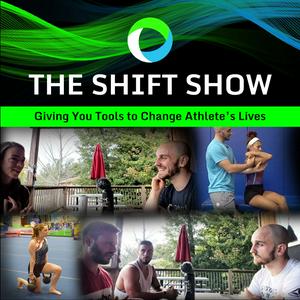
Get the free radio.net app
- Stations and podcasts to bookmark
- Stream via Wi-Fi or Bluetooth
- Supports Carplay & Android Auto
- Many other app features
Get the free radio.net app
- Stations and podcasts to bookmark
- Stream via Wi-Fi or Bluetooth
- Supports Carplay & Android Auto
- Many other app features


The SHIFT Show
Scan code,
download the app,
start listening.
download the app,
start listening.







